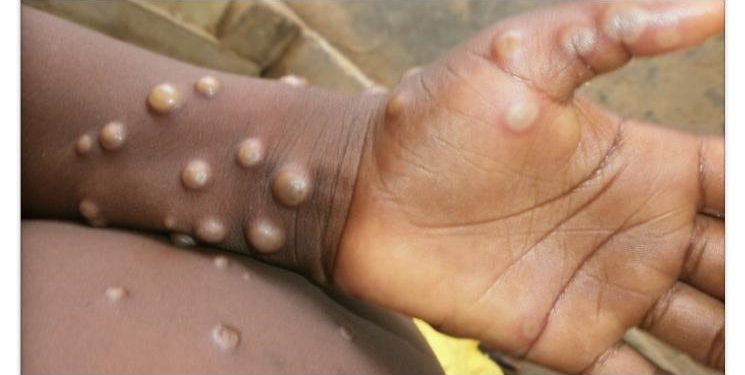By Hassan Osman Kargbo
Sierra Leone is facing a renewed public health crisis as the country grapples with a surge in Mpox (formerly known as Monkeypox) cases, with confirmed infections reportedly surpassing 5,000. The sudden spike has raised alarm across the nation, with citizens, civil society organizations (CSOs), health stakeholders, and government agencies expressing concern over the scale and speed of the outbreak.
Health officials have described the outbreak as one of the most significant public health threats the country has faced in recent years. The Ministry of Health and Sanitation has confirmed that the number of Mpox cases has surged dramatically in the past weeks, far exceeding initial projections.
According to sources within the ministry, many of the new cases have been recorded in densely populated urban areas such as Freetown, Bo, Kenema, and Makeni, but cases are now spreading to rural districts as well.
“This is a serious situation,” said a senior public health official. “The outbreak has taken a turn we did not expect, and we are now dealing with widespread community transmission.”
Mpox is a viral zoonotic disease that causes fever, rash, and swollen lymph nodes, and can lead to complications in vulnerable individuals. While it is generally less fatal than smallpox, its rapid spread and potential to cause severe illness have made it a public health priority globally.
In light of the current crisis, the government has issued an urgent advisory, calling on citizens to take all necessary precautions, including regular handwashing, avoiding close contact with infected individuals, reporting suspected symptoms early, and adhering to public health guidelines.
Community health workers have been dispatched across various regions to intensify awareness campaigns and educate the public about the signs and symptoms of the disease. Schools, markets, and transport hubs are being closely monitored as possible hotspots for transmission.
Civil society organizations have also joined the call for immediate and coordinated action. Several CSOs have raised concerns about the country’s preparedness and response mechanisms, urging the government to allocate emergency funding, provide transparent information, and strengthen healthcare infrastructure, particularly in underserved communities.
“We cannot afford to underestimate this outbreak,” said Mariama Conteh, a health advocate from the Sierra Leone Health Watch. “The number of cases is alarming, and we need urgent coordination between the government, international partners, and communities to avoid a national health disaster.”
The World Health Organization (WHO) has reportedly been notified of the outbreak and is expected to work alongside Sierra Leone’s health authorities to contain the spread. International health experts warn that, without a swift and strategic response, the number of cases could rise even further, placing immense pressure on the already fragile healthcare system.
Citizens across the country are expressing fear and confusion as misinformation circulates on social media and in public spaces. Health experts are calling on media houses to prioritize fact-based reporting and help dispel myths around the disease.
As the situation unfolds, the government is expected to announce further containment measures, including possible movement restrictions in high-risk areas and increased surveillance at entry points. For now, authorities are urging every citizen to remain vigilant, follow public health guidance, and report any suspected symptoms immediately.
With the Mpox outbreak surpassing 5,000 cases, Sierra Leone finds itself at a critical juncture in its public health journey, requiring urgent unity, clear communication, and decisive action to protect lives.













